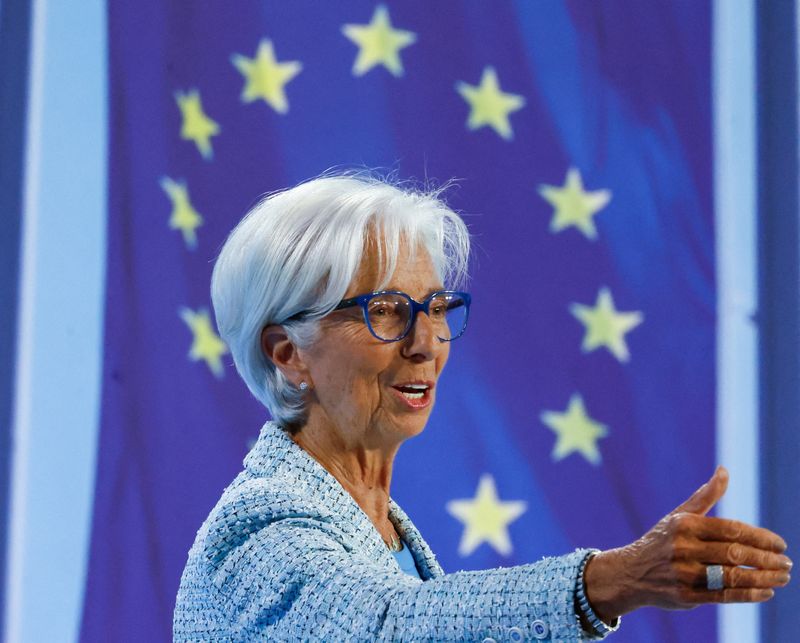ECB not in a hurry to cut rates further, Lagarde says
2024.07.01 15:38
SINTRA, Portugal (Reuters) – The European Central Bank needs more time to conclude that inflation is firmly on a path to 2% and benign economic developments indicate that rate cuts are not urgent, ECB President Christine Lagarde said on Monday.
The ECB lowered rates for the first time in June after its most aggressive rate hike spree on record, but held back on committing to any subsequent moves, arguing that the outlook was far too uncertain to telegraph a second cut.
“It will take time for us to gather sufficient data to be certain that the risks of above-target inflation have passed,” Lagarde told the ECB Forum on Central Banking, the bank’s hallmark policy conference.
“The strong labour market means that we can take time to gather new information,” she added.
The ECB is trying to walk a narrow path, reconciling inflation uncertainty and weak growth. Uncertainty would warrant caution in cutting rates, but persistent economic weakness strengthens the case for easing, tugging the ECB in opposing directions.
Lagarde acknowledged this dilemma, warning that it was still not a given that the bloc would avoid a recession, despite a modest growth uptick last quarter.
“A ‘soft landing’ is still not guaranteed,” she said. “We also need to be mindful of the fact that the growth outlook remains uncertain.”
Growth indicators in recent weeks have come in on the weaker side of expectations, challenging a widely held view that a year and a half of economic stagnation was over and a recovery was taking hold.
Still, investors are betting that inflation concerns will outweigh recession fears and the ECB will be very slow in cutting rates, especially since the U.S. Federal Reserve also signalled patience.
They now price in between one and two more cuts this year and only four cuts between now and the end of 2025.
This is mostly because the inflation outlook remains far too murky. Price growth is expected to hover on either side of 2.5% for the rest of the year, before falling back to the ECB’s 2% target by the end of 2025.

While disinflation has been relatively quick over the past year, high services costs threaten to derail the process and policymakers are now focusing on whether firms are starting to absorb quick wage growth or continuing to push higher wages on to customers.
“We are still facing several uncertainties regarding future inflation, especially in terms of how the nexus of profits, wages and productivity will evolve and whether the economy will be hit by new supply-side shocks,” Lagarde said.








